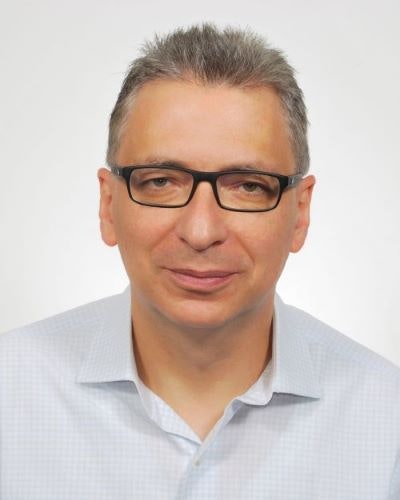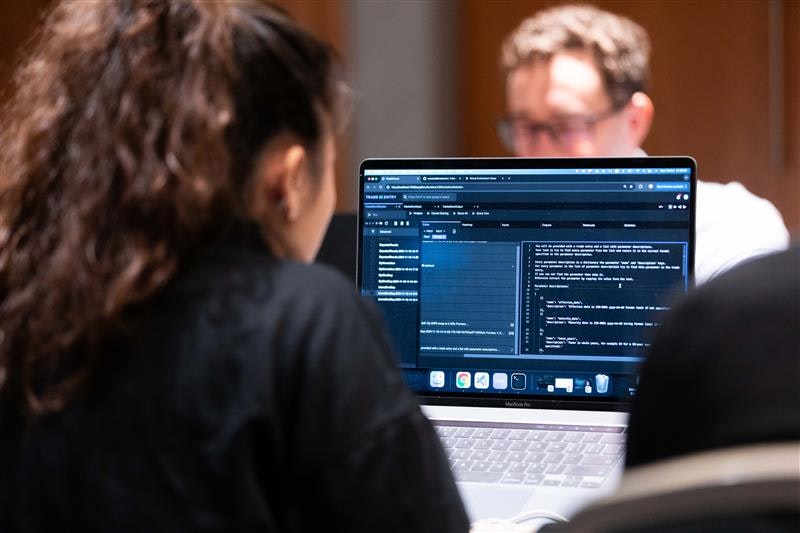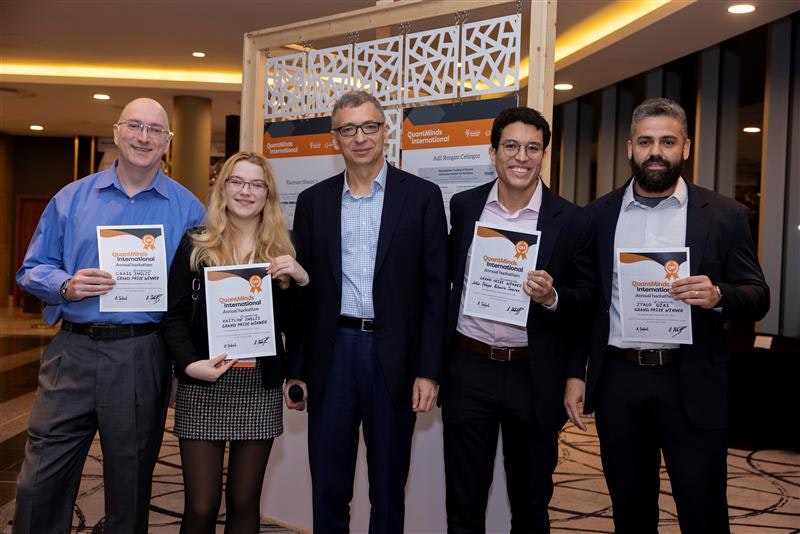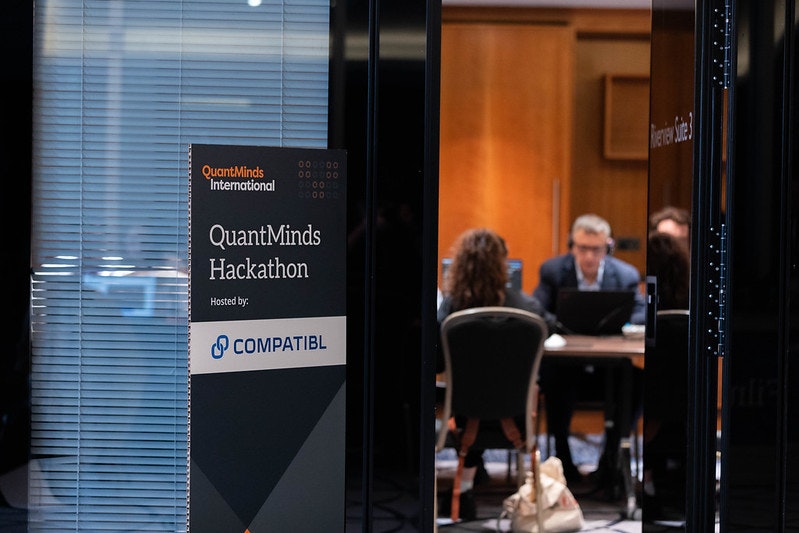The QuantMinds Hackathon:
Mitigating Cognitive Biases in AI
Join your peers at the third annual QuantMinds hackathon in partnership with CompatibL and get your chance to prove your skills as you code to compete with the top quant minds in the industry.
Monday 17 November 2025
Apply your skills to real world problems
No coding skills required.
Who's it for?
Open to all industry professionals, academics, and students.
Team or individual entries are accepted (one entry per individual).
Participants will have the option to use prompt engineering without coding, or submit their Python code via GitHub.
Why should I join?
The hackathon is a chance to demonstrate and hone your skills and learn new modelling techniques.
Your solution may have a tangible impact on the financial industry and could become a hot topic at the next QuantMinds conference.
What's the prize?
Awards will be announced for each of the four categories, with a second set of prizes for the best student participant or team in each category (post-graduate programs included).
The overall grand prize and overall student grand prize will be awarded based on the top score relative to the category average.
How to prepare?
The participants are encouraged to review the book "Thinking, Fast and Slow" by Daniel Kahneman and other literature on cognitive biases and psychological effects.
Contact Ella at ella.burton@informa.com to apply.
Mitigating Cognitive Biases in AI
Hackathon participants will work to create prompts that prevent cognitive biases of AI from affecting the result across four categories of tasks.
Each task will be designed to trigger one or more of the cognitive biases and psychological effects in AI.
Biases and Psychological Effects
The participants will design an approach to counter the following biases and psychological effects in AI:
- Confirmation Bias
- Truth Bias
- Framing Effect
- Priming Effect
- Informational Anchoring
- Priming-Induced Anchoring
Categories
1. Sentiment Analysis (predict the impact of a news headline on stock prices)
2. Regulatory Compliance (determine compliance or noncompliance with a regulatory clause)
3. Document Evaluation (evaluate the quality of a paragraph on the scale from 0 to 100)
4. Classification (assign one of several possible classes based on class descriptions)
Scoring
Before the competition, 50% of the tasks will be randomly assigned to the public dataset for use during the hackathon, and the other 50% will be used for scoring. Participants will use the public dataset to create a prompt for each of the competition categories they choose to participate in.
For scoring, each task in the scoring dataset will be presented in a way that triggers one of the cognitive biases and psychological effects in AI. The participant's prompt will be combined with the task, and the results will then be scored by running statistical analysis for the magnitude of bias.
Participants are free to use coding or any external tools (including proprietary tools) for prompt development, or develop their prompts using ChatGPT or any other software.
A tool from CompatibL for scoring the public dataset will be made available during the hackathon online and as an open source package on GitHub. The use of this tool is optional.

Hackathon Leader Alexander Sokol
Alexander Sokol is the founder, Executive Chairman, and Head of Quant Research at CompatibL, a trading and risk technology firm. He previously co-founded Numerix, serving as CTO from 1996 to 2003.He received the Quant of the Year Award in 2018 alongside Leif Andersen and Michael Pykhtin for their work on settlement gap risk, even in the presence of initial margin. His influential research includes over 50 publications in theoretical physics and quantitative finance, including:
- Systemic wrong-way risk (with Pykhtin)
- Joint measure models and local price of risk (with John Hull and Alan White)
- Mean reversion skew (Risk Books)
Sokol entered college at 14 and earned a Ph.D. in Theoretical Physics by 22. He won the USSR Academy of Sciences Medal for Best Student Research in 1988.
Notes
*While there is no requirement to publish the competition entries, confidential treatment of code and prompts is not practical in a competition setting. For this reason, eligible competition entries must be submitted under an open-source license.



